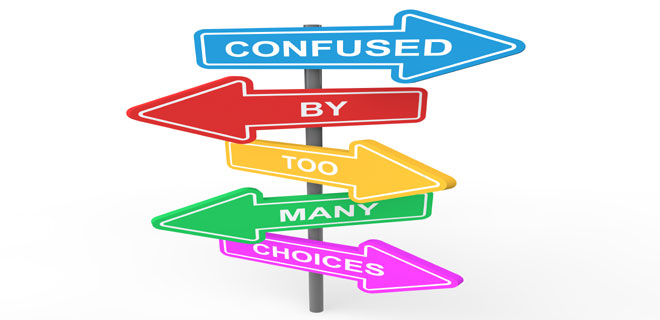Less is more or more is less is a situation that I feel I am staring at these days with the multitude of choice when it comes to paying for goods and services. It is not anymore about just cash, cheque or card. You can pay by mobile app, e-wallets, RTGS, UPI and more. Each option comes with a different set of requirement and protocols. You can try them if you have the time - it's an enlightening experience. I have learnt that, if you look really close, there is indeed a difference between each one of them.
Chatting up with people, I have reached the conclusion that most people settle for the first one they experimented with and stop after that. It's exciting to experience new payment methods and have a deep discussion about them with people who need them as well as those who have developed them. For instance, an early wallet company executive went over and over about how his wallet had all the features that have become the standard norm now. He was boasting how they had set about the standards when others were not even around.
Paradox of choice
Such one-upmanship leaves me exhausted. When I discuss the many options with my better half, the response is mostly one of irritation or an expression of bewilderment. She confronts me with a - can you not just tell me which one is good for me to go ahead with? Choice does paralyze consumers, especially those looking to consume financial products and services. One must read Professor Barry Schwartz's books or watch his TED Talk video below. Schwartz has done work in social theory and social action at Swarthmore College and propounded the theory of the Paradox of Choice, in his book of same name.
His book focuses on a ubiquitous aspect of modern urban life: the abundance of choice and whether that is good for us psychologically and emotionally. Free markets proponents and classical economists believe choice is good and feel it gives consumers the freedom of choice to select what they want. But, Schwartz disagrees with this thought because in his experience he feels choice paralyzes the consumer. Choice was supposed to set us free but it ties us up in chains. With a mind-boggling array of choices, he says, the act of choosing itself has become a challenge. Author Sheena Iyengar, another expert in the field has done a lot of work on the Art of Choosing.
Simple, easy and efficient
I have said this in the past and for the sake of emphasis, would repeat it again - Apple products leave little to choice and play such an important role in functionality that there is little to confuse on what the product will do. As modern-day financial consumers, we keep measuring opportunity cost - wondering if that mutual SIP was not correct and if one should have actually pit the money in the bank instead? The more options we have, says Schwartz, the more opportunities there are for regret as we keep measuring up our selection against each of the ones we didn't make.
Financial product developers should focus on simplification. Most often mis-selling happens because one assumes they are getting what they had envisaged at the time of investing, only to discover later that the product has not achieved what they thought it would do for them. The other trouble with choice is that it leads to more opportunities for one to feel bad about perhaps not having made the right decision, resulting in instances of sulking over actions with money, even if it is for all the right reasons. I know of a friend who has put money in an e-wallet and feels it is doing him no good because most places he tries using it, it is being rejected.
There is no substitute to simple cash. But, for some of us who lived through socialist India, a single TV channel would remind of the drab programming and telecast versus the loads of channels we can choose from, many of them unheard or unseen. In today's context, it is good to have some choice in the manner in which you can make payments in the absence of cash, but that should not result in so much choice that it can be a put off.
As Schwartz says, "Some choice is better than none, but it doesn't follow that more choice is better than some choice." For now, try some means to shift from cash to digital payments, discover the form which will suit you for certain activities and the ones for certain others and then just follow that. No point in downloading a dozen wallet apps and payment mechanisms. Doing so will mean you are going to do what most TV viewers do - channel surf, with no clear focus or happiness in watching TV.













